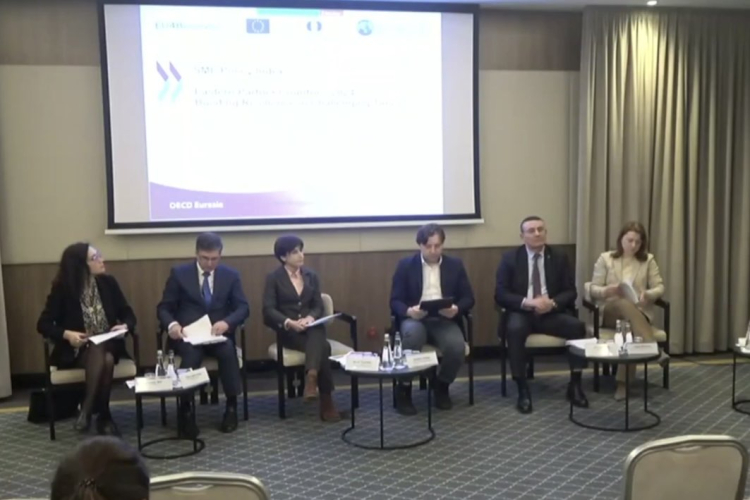
Since 2020, Moldova’s policies on Small and Medium-Sized Enterprises have improved on eleven of the twelve dimensions of the Organization for Economic Co-operation and Development (OECD) SME Policy Index. According to the assessment, progress has been made in the areas of skills, operational environment and internationalization of SMEs, IPN reports.
Since the previous n round of assessment of the Small Business Act 2018-2019, Moldova has made progress. The country got a score above the Eastern Partnership average in nine dimensions out of twelve and demonstrated the best performance among the partner countries in the field of green economy.
According to Salomé Will, policy analyst at the OECD Eurasia Division, the number of SMEs has been relatively stable in recent years. They make a contribution to the employment market similar to the EU level. As far as turnover is concerned, it is lower than in the EU, but it is above the average in terms of turnover at country level.
Minister of Economic Development and Digitalization Dumitru Alaiba, said that SMEs are the “backbone” of the entire economic system. Things go well, but there is a lot of work to do, including in the field of digitization. The disparities that exist in different subfields suggest that the human resources remain the main resource. The programs transposed into legislation are designed to be in line with the interests of this category of population.
Maria Terentiev, principal manager at EBRD, said that when it comes to financing through banks, SMEs continue to face high interest rates, challenging requirements and long approval periods. Many SMEs would like to benefit from a bank loan, but cannot afford to take it and are not ready to take certain risks. The EBRD continues to refer these companies to state-supported programs or EBRD credit lines and hopes that there will be more beneficiaries in the future.
Liliana Busuioc, executive director of the Alliance of Small and Medium -Sized Enterprises of Moldova, noted that emphasis needs to be placed on creating opportunities for innovation for SMEs, while the approach to providing a second chance needs to be more present in Moldova. Also, Moldova was identified as one of the countries that imports the most. In this connection, it is important for local companies to export more and the population must be encouraged to buy locally.
The SME Policy Index: Eastern Partnership Countries 2024 – Building resilience in challenging times was developed by the OECD and EBRD within the multinational project “EU4Business: From Policies to Action in the Eastern Partnership – Phase 2”, with the financial support of the European Union under the EU4Business initiative.


